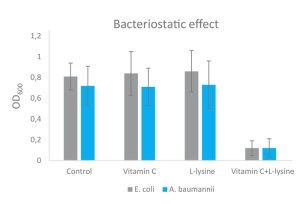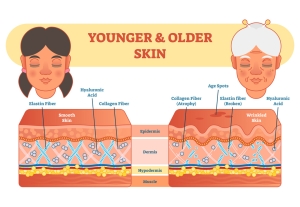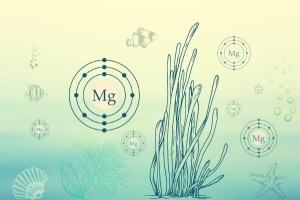In a world where bacterial infections are a constant threat, scientists at the Dr. Rath Research Institute uncovered a formidable team - lysine and vitamin C which when combined can become a powerful force against the bacteria responsible for urinary tract infection (UTI) and a range of other infections.
Bacterial infections, especially those causing UTI, are a widespread concern. These infections can disrupt your life, causing discomfort and even serious health complications, and the overuse of antibiotics has only fueled the rise of antibiotic-resistant strains, making effective treatment harder to achieve.
As the summer approaches, we become more concerned with sun exposure and skin cancers. Basal cell carcinoma, squamous cell carcinoma, and melanoma are the most common forms of skin cancers, and malignant melanoma is the most fatal of them all. Worldwide, one in three people are diagnosed with cancers that are classified under skin cancers.
Prostate cancer is one of the most common cancers affecting men worldwide and is the second most common cancer in men globally. It is a significant health concern, specifically in men 65 and older, as one in every eight men will be diagnosed with prostate cancer in their lifetime.
The prostate gland is a small walnut-shaped organ that produces seminal fluid, which in turn contains many enzymes including prostate-specific antigen (PSA) and contributes to the fluidity of semen. Increase in the PSA levels is one of the main indicators of either prostate cancer or benign prostatic hypertrophy. Although screening may help earlier diagnosis of prostate cancer, treatment options are still confined to surgery, hormone therapy, and radiation, with high cost, serious side effects, and limited efficacy.
Millions of people worldwide are affected by seasonal and food allergies. Allergies are hypersensitivity responses that occur when the immune system overreacts to substances that are normally harmless such as pollen, pet dander, or certain foods. Allergies are associated with a variety of symptoms such as sneezing, itching, nasal congestion, skin rashes and digestive symptoms. Some allergies need an immediate medical intervention as life threatening while most of the allergy management involves allergen avoidance and symptomatic treatment by medications. However, there is substantial research support on application of micronutrients in modulating the immune response and reducing allergy symptoms. Some of these include:
You may be surprised to know that our skin is the largest organ in the body comprising 15% of the body weight. In addition to providing protection, regulating body temperature, and excreting toxins, it also uses sunlight to produce the important nutrient – vitamin D. Healthy looking skin results from a good supply of oxygenated blood and optimum collagen content. Changes in its appearance tell a lot about our internal health as various nutritional deficiencies, an unhealthy lifestyle, digestive, liver, and kidney issues, hormonal imbalances, inflammatory diseases, allergies, and autoimmune disturbances are visible on the skin. Therefore, skin health is essential for our overall well-being.
Lyme disease, also called Borreliosis, is a tick born bacterial infection and is the most common vector born disease in the United States and Europe. It is caused by the bacterium of the Borrelia species which is carried by the ticks from animals to humans. Due to unspecific flu-like symptoms including headache, fatigue, low grade fever, rash and joint pains, it is hard to diagnose and treat Lyme disease at an early stage. If the bacteria is not eliminated more symptoms develop that can last for months or years and significantly reduce an individual’s quality of life. Various antibiotics are not fully effective especially against latent forms of the bacteria and also add the risk of side effects.
Magnesium is the fourth most abundant mineral in our body and while it is critical in human health, its role is highly underappreciated.
Our diet provides less than half of the recommended daily allowance of 320-420mg/day and 50-75% of the population is chronically magnesium deficient. Magnesium deficiency has been associated with advanced age, stress, excessive alcohol consumption, smoking, and diseases affecting the digestive tract, liver, and kidneys. Drugs such as diuretics further remove the available magnesium in the body. Magnesium deficiency is not easy to identify because it lacks specific symptoms. It can manifest as dizziness, difficulty in concentration, irritability, fatigue, anxiety, depression, constipation, headaches, and muscle cramps.






